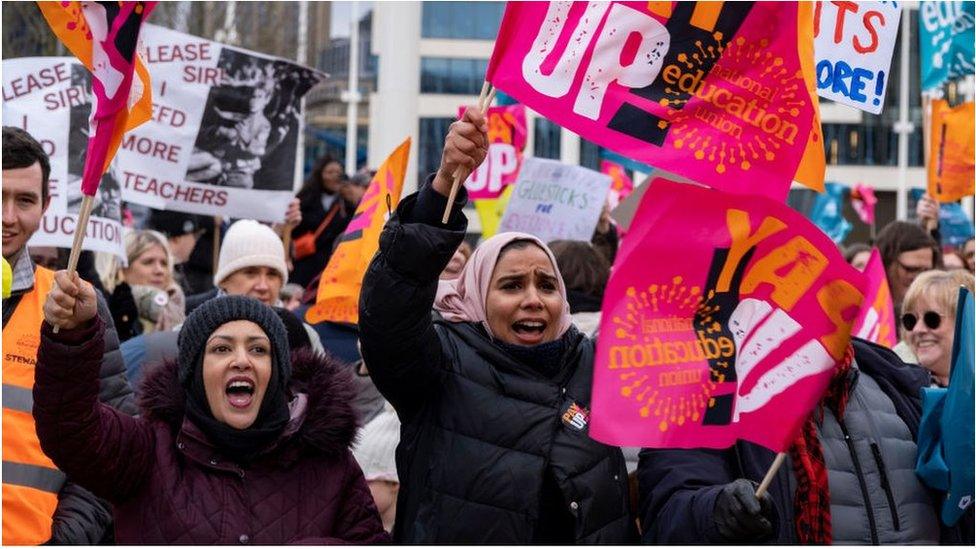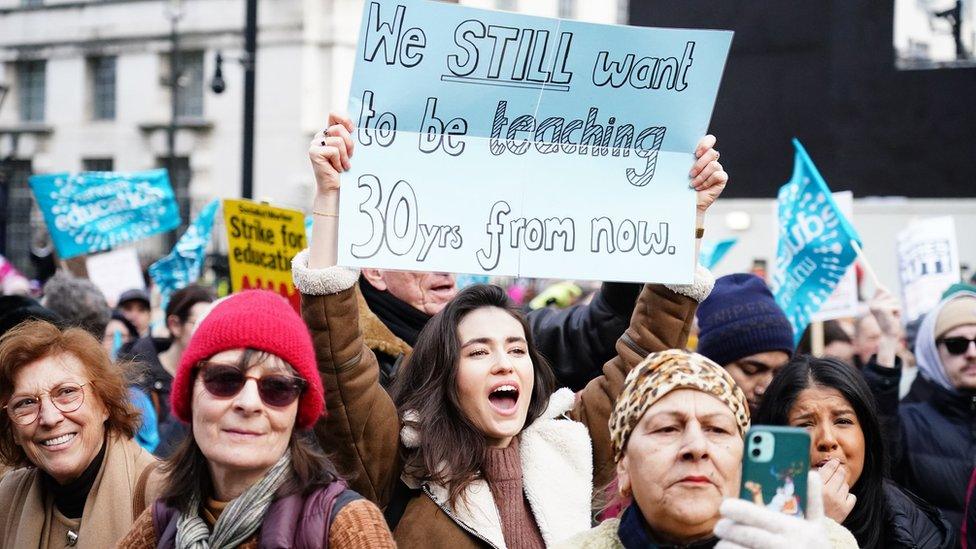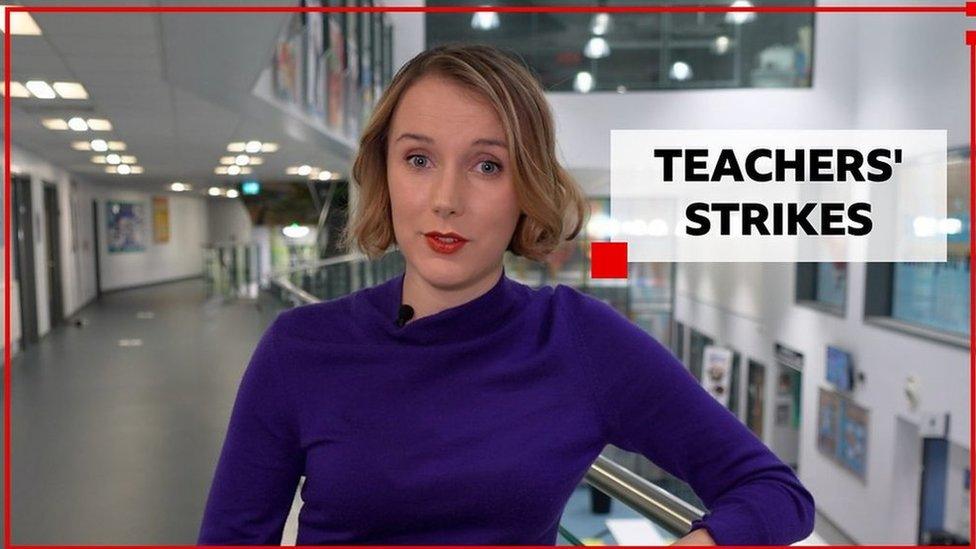Teachers vote for another three days of strikes
- Published

Teacher strikes are likely to continue in England until the end of the school year, after National Education Union (NEU) members voted for three strike days in late June or early July.
Strike dates have already been confirmed for 27 April and 2 May.
The NEU also plans to ask members whether they want to continue strike action next year, in a move the government said was "unforgiveable".
It rejected an improved pay offer this week.
Most teachers were offered a 4.3% rise next year, as well as a £1,000 one-off payment this year. Starting salaries would also rise to £30,000 from September.
The three further dates - which members voted for at the NEU conference in Harrogate - will now have to be approved by the NEU executive when it meets on 18 May.
The proposals mean strikes will not take place while students sit their A-level and GCSE exams.
However, the NEU intends to use the exam period - which starts on 15 May - to re-ballot its teacher members in England on further strike action in the next academic year.
Kevin Courtney, its joint general secretary, said: "Parents and the education profession will be in no doubt that if further industrial action needs to be taken the blame for this will lie squarely at the government's door."
Less than half of England's schools were fully operational during national teacher strikes on 1 February and 15 and 16 March.
WATCH: What do the teachers' strikes in England mean for parents?
Negotiations after the last national strike resulted in an improved pay offer from the government.
The results of the NEU ballot on Monday found 98% of members were in favour of turning the deal down.
The Association of School and College Leaders (ASCL) also overwhelmingly rejected the pay offer.
Both unions argue it was not fully funded, which could mean schools having to make cuts elsewhere.
The government said it believed schools could afford to fund most of the 4.3% pay rise through money already promised in the Autumn Statement, but that it would have provided some additional money to fund the remainder of it, and to fund the £1,000 one-off payment.
However, Luke Sibieta, from the Institute for Fiscal Studies, said the average school could fund a "small amount of the higher pay offer" from its budget - but the picture varied from school to school.
The Department for Education said it was "unforgiveable that the NEU are re-balloting for more strike action up until Christmas this year".
"NEU and ASCL's decision to reject this offer will simply result in more disruption for children and less money for teachers today," a spokeswoman said.
Education Secretary Gillian Keegan said pay would now be decided by the independent pay review body, which would recommend pay rises for next year. This means the £1,000 payment for this year will not happen.
Teacher salaries fell by an average of 11% between 2010 and 2022, after taking inflation into account, according to the Institute for Fiscal Studies. Most state school teachers in England had a 5% rise in 2022.

How will you be affected by the planned strikes? Are you a teacher who is striking? You can get in touch by emailing haveyoursay@bbc.co.uk, external.
Please include a contact number if you are willing to speak to a BBC journalist. You can also get in touch in the following ways:
WhatsApp: +44 7756 165803
Tweet: @BBC_HaveYourSay, external
Please read our terms & conditions and privacy policy
If you are reading this page and can't see the form you will need to visit the mobile version of the BBC website to submit your question or comment or you can email us at HaveYourSay@bbc.co.uk, external. Please include your name, age and location with any submission.
Related topics
- Published3 April 2023

- Published16 January 2023
